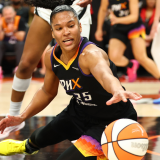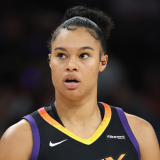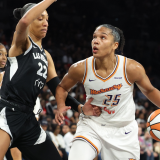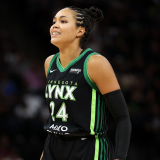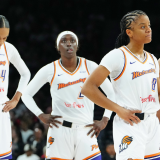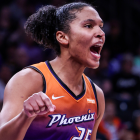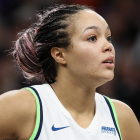
Paige Bueckers pushes for 'rightful pay' in WNBA labor talks
Bueckers joined the call for better pay and improved scheduling amid the WNBA's rapid growth
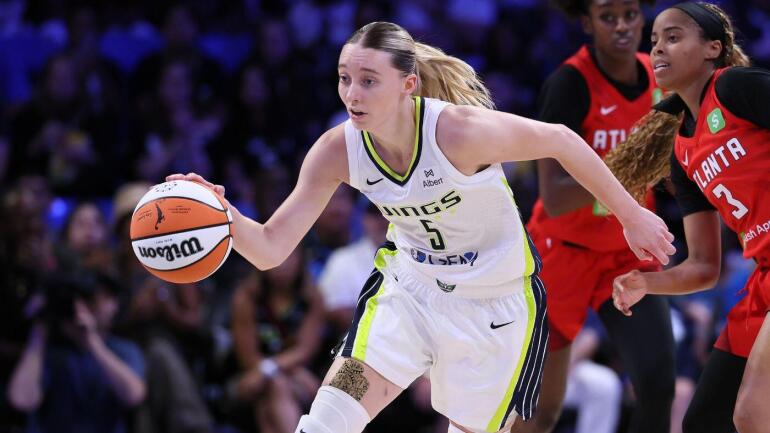
As the WNBA approaches a key juncture in labor negotiations -- with its collective bargaining agreement set to expire after the 2025 season following the players association's opt-out last fall -- one issue stands front and center: compensation.
Players aren't asking for NBA money, but the call for pay that reflects the WNBA's own momentum. With record-setting viewership, growing attendance and a landmark $2.2 billion media rights deal now on the books, the league is experiencing unprecedented growth. That surge, players argue, should be matched by a rise in salaries -- and Dallas Wings rookie Paige Bueckers is among those adding her voice to the conversation.
"I mean, just the rightful pay? I think that's what everybody's like working for," Bueckers said on Front Office Sports' Nilosophy podcast. "But just like how much we invest in, how much we put into this WNBA season and how much it really has grown and blown up and expanded and the respect, attention, the accessibility -- you see everything growing. So I feel like the pay should grow with those numbers that have been proven, that it's only going to increase."
This isn't the first time WNBA players pushed for better pay, but the league's growth and new media deal could make this a turning point.
According to Reuters, WNBA players receive just 20% to 25% of basketball-related income -- a stark contrast to the NBA's roughly 50% share. Salaries in the league range from $66,000 to $250,000 per year, a fraction of the NBA's average salary of around $10 million.
However, the revenue gap is huge: the NBA's new 11-year media rights deal is valued at $76 billion -- over 30 times larger than the WNBA's $2.2 billion agreement. This disparity underscores the uphill battle WNBA players face as they push for higher compensation.
Pay isn't the only issue on the table. Bueckers also highlighted concerns about the league's scheduling and its impact on player health and performance with limited rest between games.
"You want the best product so maybe extending the season," Bueckers said. "I know there's gonna be more teams, so that does mean more games. So can we expand it? For me, in my instance specifically, and the other rookies, maybe push the start date back a little bit. The turnaround [from college] is insane. It's not always best for the bodies. Like I said, it's all about product and we want to look the best and be the best and feel the best."
After leading UConn to an NCAA title on April 6, Bueckers quickly transitioned to the next chapter of her career. Just over a week later, on April 14, she was selected No. 1 overall in the WNBA Draft. Less than two weeks after that, she reported to Dallas Wings training camp on April 27, beginning her professional journey without much of a break.
With the WNBA set to add two more teams and expand its 44-game schedule, finding a more balanced calendar will be crucial to sustaining the league's rapid growth and ensuring players can perform at their best for years to come.
![[object Object] Logo](https://sportshub.cbsistatic.com/i/2020/04/22/e9ceb731-8b3f-4c60-98fe-090ab66a2997/screen-shot-2020-04-22-at-11-04-56-am.png)


